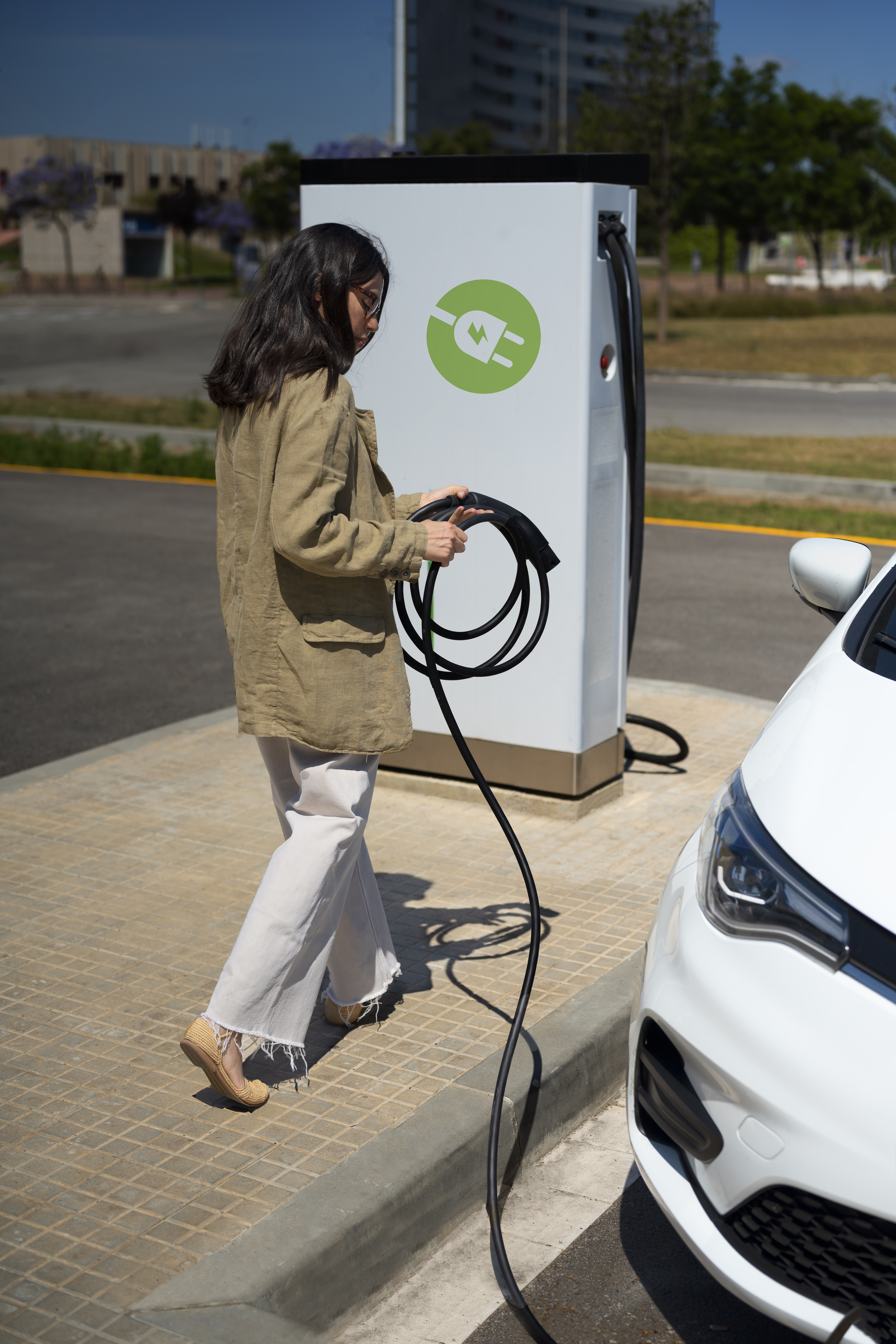EV Charging involves supplying electrical energy to an electric vehicle (EV) to replenish its battery. This process requires a dedicated EV Charger that connects to the vehicle via a specific plug type. The charger draws electricity from a power source, such as a standard household outlet or a high-voltage commercial charging station, and transfers it to the vehicle’s battery. The charging rate and time depend on the charger type, the vehicle's battery capacity, and the power source. EV Charging is essential for maintaining the vehicle’s operational range and ensuring it is ready for use.
EV Charging Basics

EV chargers are classified into three categories: Level 1, Level 2 and direct current (DC) fast chargers.
✓ Input voltage: This is how much power a charger requires to operate and is expressed in volts.
✓ Power output: This is how much power a charger can generate and is expressed in kilowatts (kW).
✓ Charging speed: This is the number of miles added to the EV’s battery per hour of charging and depends on the charger’s power output.
✓ Equipment and installation cost: While basic EV chargers are inexpensive and can be plugged into a standard outlet, others have higher upfront equipment prices and must be installed professionally by an electric vehicle service provider (EVSP).
✓ EV power intake: Charger power (kW) may be limited by your EV’s battery. Check your vehicle’s specs for compatible charging levels.
✓ How fast is DC fast charging?
DC fast chargers can typically charge a 300-mile battery from 10-80% in about 20 minutes, equating to around 540 miles of range per hour of charging.
✓ What is the input voltage for a DC fast charger?
DC fast chargers require at least 480 volts and 100 amps, with newer models supporting up to 1000 volts and 500 amps (up to 360 kW).
✓ How much do DC fast chargers cost?
Costs range from $18,000 to $72,500 per unit, with an average of $29,135. Installation also requires a commercial electrician due to high electrical load.
✓ Is a DC fast charger right for me?
DC fast chargers are ideal for high-traffic areas and long-distance travel but are not compatible with all EVs. They support connectors like CHAdeMO, CCS, and Tesla, with CCS being the industry standard.
✓ How fast is Level 2 charging?
A Level 2 charger can fully charge a 300-mile battery in about 6-8 hours, making it ideal for overnight or destination charging.
✓ What is the input voltage of a Level 2 charger?
Level 2 chargers typically require 220V or 240V service.
✓ What is the power output of a Level 2 charger?
Level 2 chargers range from 3 kW to 19 kW in power output.
✓ How much do Level 2 chargers cost?
Costs range from $685 to $6,626 per connector, with an average of $2,976.
✓ Is a Level 2 charger right for me?
Level 2 chargers are suitable for residential and commercial settings, offering more power than Level 1 chargers. Networked chargers have advanced features like charge scheduling and remote access, while non-networked chargers are simpler and suited for single-family homes and smaller setups.
✓ How fast is Level 1 charging?
Level 1 chargers provide 3.5 to 6.5 miles of range per hour and are mainly used for emergency or overnight charging. They are the slowest type and not eligible for MANN rebates.
✓ What is the input voltage of a Level 1 charger?
Level 1 chargers use a standard 110V or 120V outlet.
✓ What is the power output of a Level 1 charger?
Power output ranges from 1-2 kW, similar to a microwave.
✓ How much do Level 1 chargers cost?
Level 1 chargers cost between $596 and $813, with most EVs coming with a manufacturer-branded cord set.
✓ Is a Level 1 charger right for me?
Level 1 chargers are suitable for multiunit dwellings (MUDs) and some workplaces but offer slower charging. For new installations, a Level 2 charger is often more cost-effective and efficient.